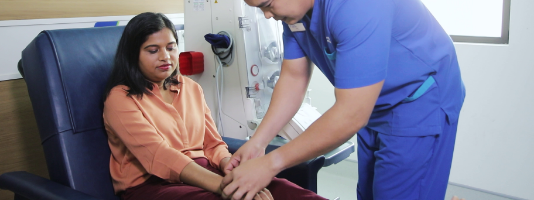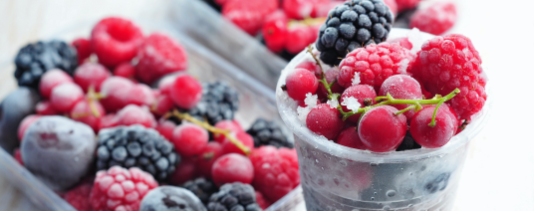Monitoring Fluid and Nutrition on Dialysis

Healthy kidneys clear the body of excess fluid. Now that your kidneys are not working properly, excess fluid and unwanted waste have to be removed by dialysis.
Consuming too much fluid may cause fluid overload between dialysis sessions, resulting in the following:
- Swelling in your feet, face and hands (edema)
- Trouble breathing
- Feeling weak
- High blood pressure that can lead to a stroke
- Headaches
- Heart damage
Anything you’re drinking out of a cup – water, tea, ginger ale – is easy to identify as a liquid. There are also some foods that contain enough liquid to be considered “fluids” and should be limited accordingly:
- Soup
- Ice cream, ice blocks, sorbet
- Nutritional drinks

Monitoring and tracking your liquids
Your fluid status will often be estimated and determined by doctors and nurses based on your blood pressure, or other clinical observations.
Find out how many Fresenius Kidney Care centers can determine the amount of fluid in your body using a non-invasive, easy and objective measuring device.
How to handle thirst when limiting fluids
Try these ideal thirst quenchers to help you control your thirst:
- Eating cold or frozen fruit, like grapes
- Chewing sugar-free gum
- Rinsing your mouth with alcohol free mouthwash







